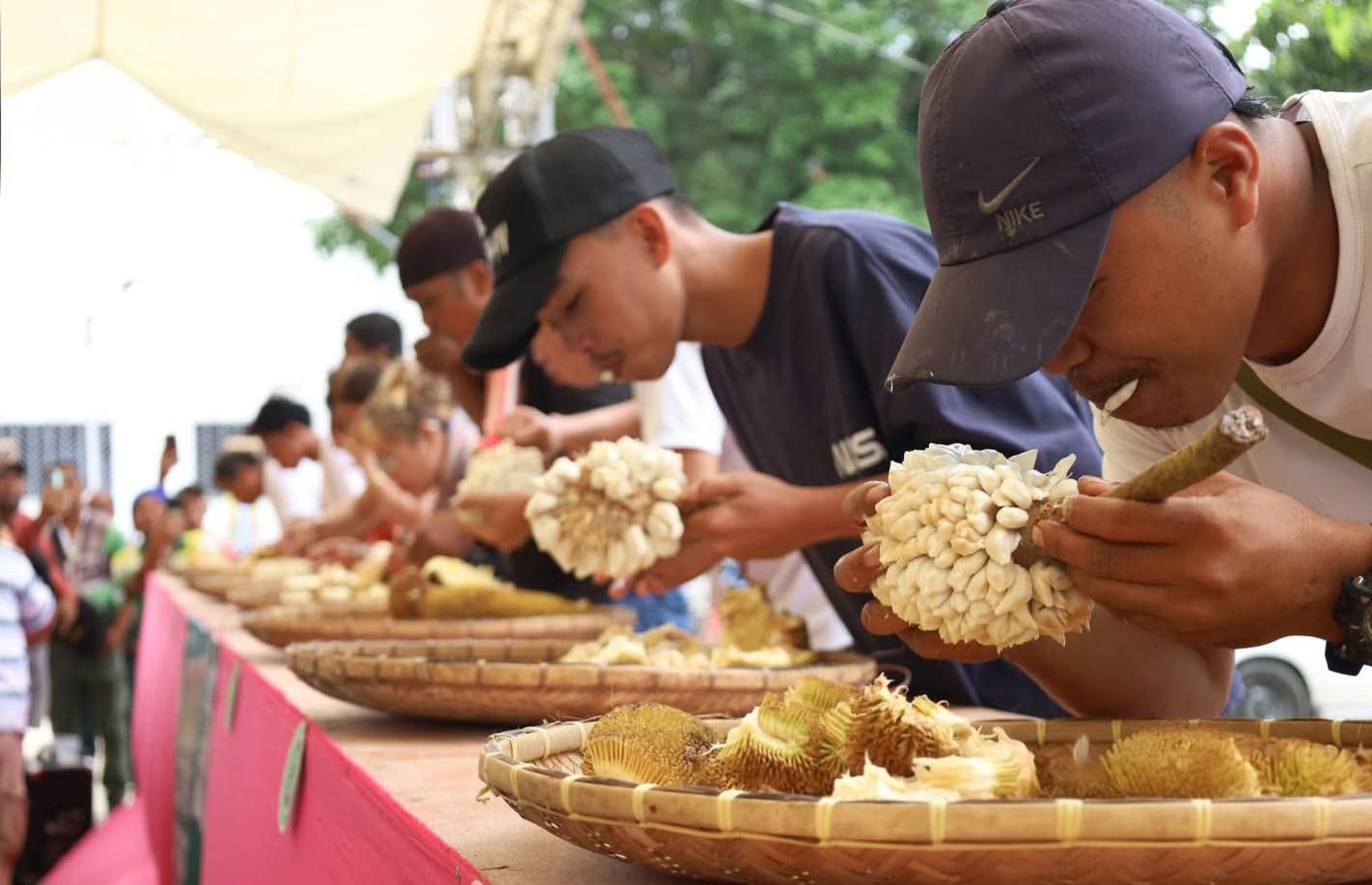Physical Address
304 North Cardinal St.
Dorchester Center, MA 02124
Physical Address
304 North Cardinal St.
Dorchester Center, MA 02124

Kidapawan City pushes forward with the festival, now a showcase of abundance and urgency centered on a promise to plant three million trees in five years
KIDAPAWAN, Philippines – The Timpupo Festival has always been a celebration of plenty. In Kidapawan City, where the foothills of Mount Apo slope into fruit orchards, the air in late August is supposed to be heavy with sweetness. Rambutan (hairy lychee), lanzones (Lansium parasiticum), mangosteen, and durian usually announce their presence in the breeze.
This year, the aroma is subdued. The 37th edition of the festival, held from Monday, August 18, to Wednesday, August 27, came with fewer fruits to harvest and a city in the Soccsksargen region reckoning with the hard truth of climate change.
Kidapawan Mayor Paolo Evangelista did not conceal the scale of the problem. “We have really felt the effects of climate change this year. Our fruit production is only 5% of what it was last year. We expected April, May, and June to be warm months, but because of climate change, we had heavy rain, which is why the trees didn’t flower,” he said.

The city moved forward with the festival that has taken on a different character. It was still a showcase of abundance, but, this time, also a statement of urgency. At its center was a promise to plant three million trees in five years.
“Timpupo means ‘to harvest,’ but we are redefining it. It’s not just harvesting; we also have to plant,” Evangelista told Rappler.
The Kidapawan city government began its tree-planting campaign in 2023, drawing in schools, civic groups, and barangay volunteers. It is a plan rooted in necessity as much as in hope.

Evangelista asserted that no engineering project can match the natural power of trees to absorb water, cool the air, and anchor the soil.
“You cannot tame nature with artificial structures. Nature can only be tamed by nature itself,” he said.
For farmers, the shift in seasons has been punishing. Former agriculture secretary and Cotabato governor Emmanuel Piñol has felt it on his own land. “Usually, mangosteen, lanzones, and rambutan are abundant from July to August, but they are very rare now,” he said.
Piñol described an industry chained to natural rainfall, a cycle that once sustained growers but now leaves them exposed to erratic storms and failed harvests.
“That’s the problem,” he said. “If everyone is dependent on the same factors, then when it rains after a long drought, everyone’s trees bear fruit at the same time, and prices drop.”
He has urged farmers to embrace science, technology, and methods that can regulate fruiting and prevent the wild swings of supply and demand.

In the meantime, the festival carried on. On Wednesday, people filled Quezon Boulevard for two kilometers to feast on fruit during the “Eat All You Can sa Kadalanan.”
Durian was grilled. Santol (cotton fruit) ice cream was handed out at 4 pm every afternoon from Monday to Tuesday until supplies ran out.
A tourist from Arizona, United States, who gave his name as Randy, said it best: “Somebody gave me mangosteen, people here are lovely, the fruits are abundant. I love it here.”
The celebration concluded on Wednesday evening, with a fruit float parade and a pyromusical display.
Kidapawan staged a grand celebration, but the sweetness of the festival now comes with a message: The city is planting trees as if its future depends on it, because it does. – Rappler.com